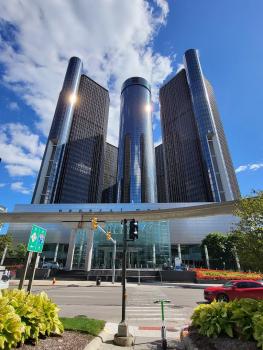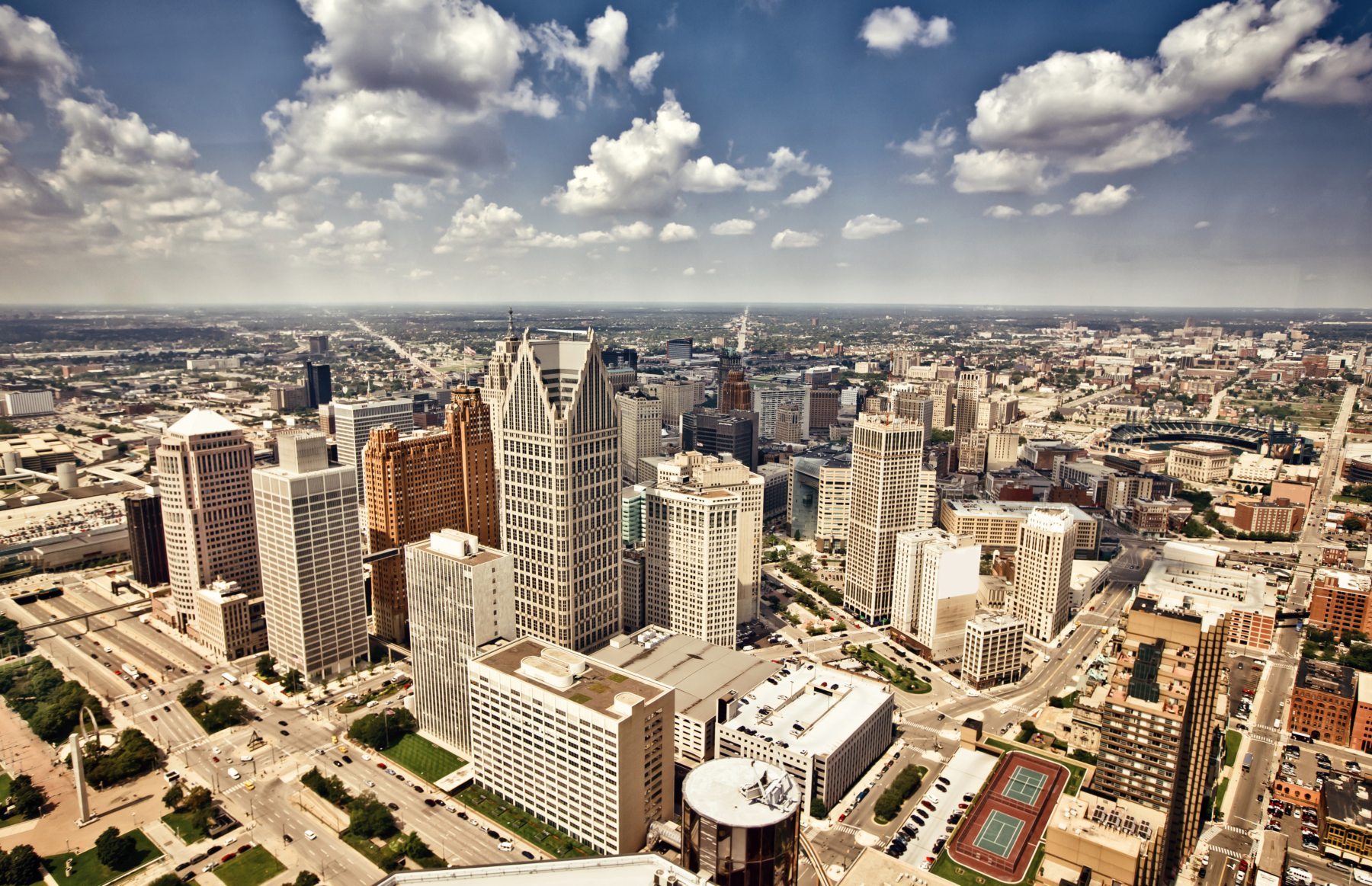
The proposed redevelopment of Detroit’s Renaissance Center (RenCen) involves a $1.6 billion overhaul that includes demolishing two 39-story towers near the Detroit River while preserving and repurposing three others, including the 73-story Marriott Hotel, Michigan’s tallest building. This plan, spearheaded by General Motors (GM) and Dan Gilbert’s Bedrock real estate firm, aims to modernize the site by reducing underutilized office space and enhancing public access to the riverfront. The redesign includes creating new public promenades and integrating housing into the complex.
The initiative emerges as GM prepares to relocate its headquarters to Gilbert’s Hudson’s Detroit development by 2026, leaving the RenCen with declining occupancy. Bedrock has pledged $1 billion to the project, with GM contributing $250 million and seeking an additional $250 million in public funding. However, state financial support faces political resistance, with critics arguing that GM should bear the redevelopment costs independently, especially given its recent job cuts and relocation plans.
Urban planners and architects involved in the conceptual phase have highlighted the project’s potential to connect the complex to Detroit’s evolving urban fabric. Critics, however, caution that simply demolishing towers and creating open spaces may not suffice without clear efforts to engage community input or foster activity in the new public areas. This tension underscores the challenge of balancing corporate redevelopment with meaningful urban revitalization.
The redevelopment of General Motors' Renaissance Center (RenCen) headquarters is expected to have significant implications for the city of Detroit, influencing its urban landscape, economic environment, and social fabric.
Positive Impacts:
- Enhanced Riverfront Connectivity:
The proposed removal of two towers and the RenCen’s base is designed to create open public spaces that improve access to the Detroit River. This aligns with ongoing efforts to make the riverfront a vibrant and accessible community hub, benefiting residents and attracting visitors. - Urban Revitalization:
Transforming parts of the complex into housing, mixed-use spaces, and modernized office facilities could address changing demands for office real estate. These updates would modernize Detroit's architectural landscape and attract new residents, businesses, and investors. - Job Creation:
The $1.6 billion redevelopment project, supported by private and public funding, is expected to generate construction and long-term jobs, contributing to the city's economic growth. - Repurposing Iconic Infrastructure:
By retaining and renovating three towers, the project preserves a landmark while adapting it to contemporary needs. This balance of historic preservation and innovation underscores Detroit’s evolution.
Challenges and Concerns:
- Economic Displacement and Costs:
The reliance on $250 million in public funding has sparked political and public debate. Critics argue that taxpayer dollars should not support a redevelopment led by a corporation relocating its headquarters, potentially placing a financial burden on Detroit residents. - Uncertain Public Engagement:
Critics, including urban planners, have highlighted the risk of creating underutilized public spaces if the redevelopment fails to incorporate community-driven design. Without meaningful public input, these spaces may lack vibrancy and purpose. - Post-Pandemic Office Market:
Detroit's office real estate market has struggled post-pandemic, with reduced demand and high vacancies. While the project aims to “right-size” the RenCen’s footprint, the long-term viability of the remaining office space remains uncertain. - Symbolic Shift:
GM’s relocation from the RenCen, which has been its headquarters for decades, represents a symbolic shift in Detroit’s corporate identity. This could affect the city’s perception as an automotive and business hub.
Long-Term Impact:
The redevelopment of the RenCen has the potential to catalyze broader urban renewal in Detroit, reinforcing the city's riverfront as a cultural and economic destination. However, its success will depend on effective community integration, sustainable economic strategies, and balanced partnerships between public and private stakeholders. With careful planning, the project could symbolize Detroit's resilience and adaptability in a post-industrial era.

